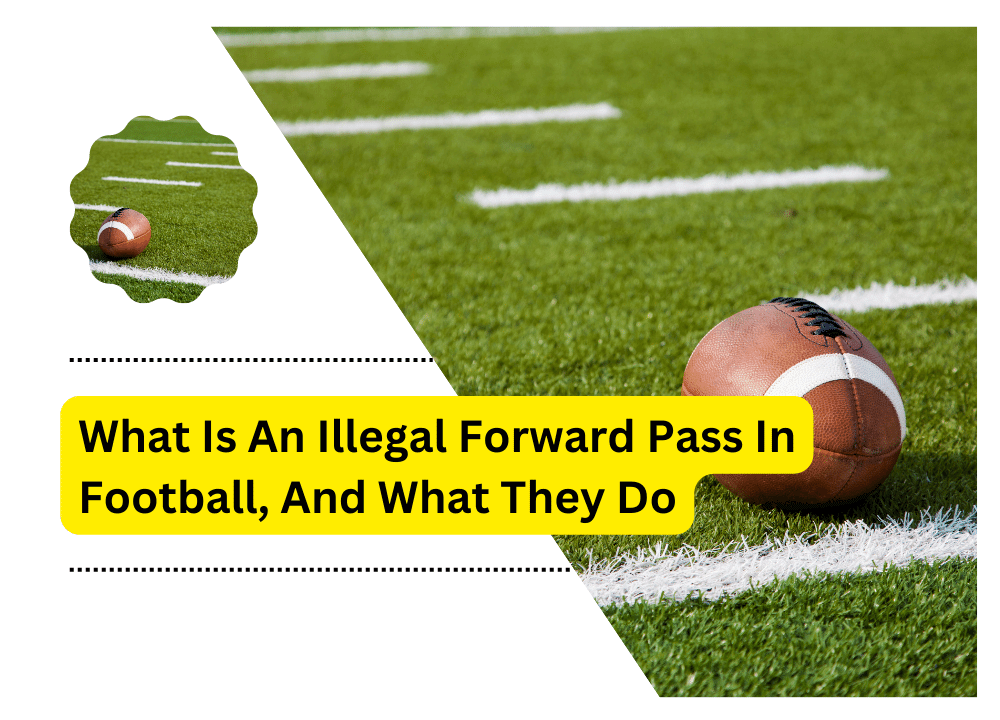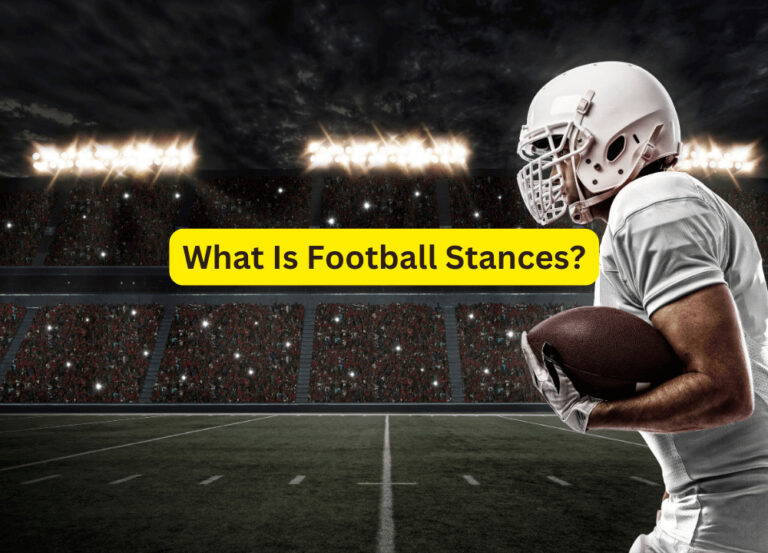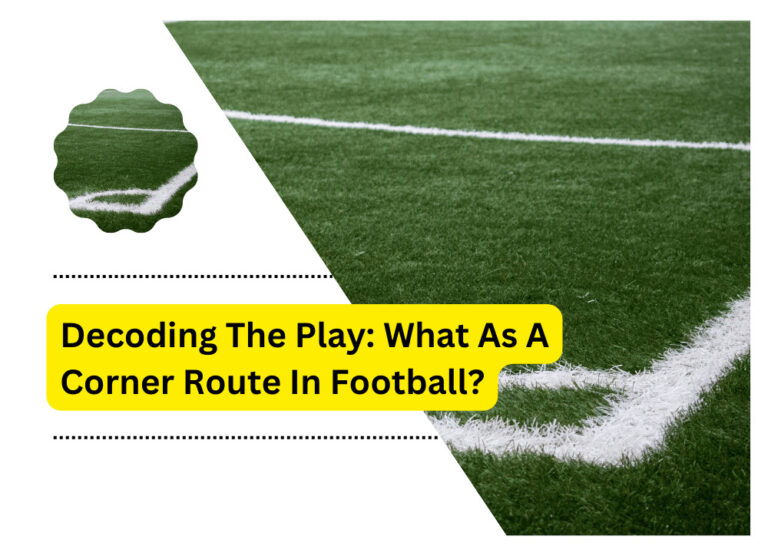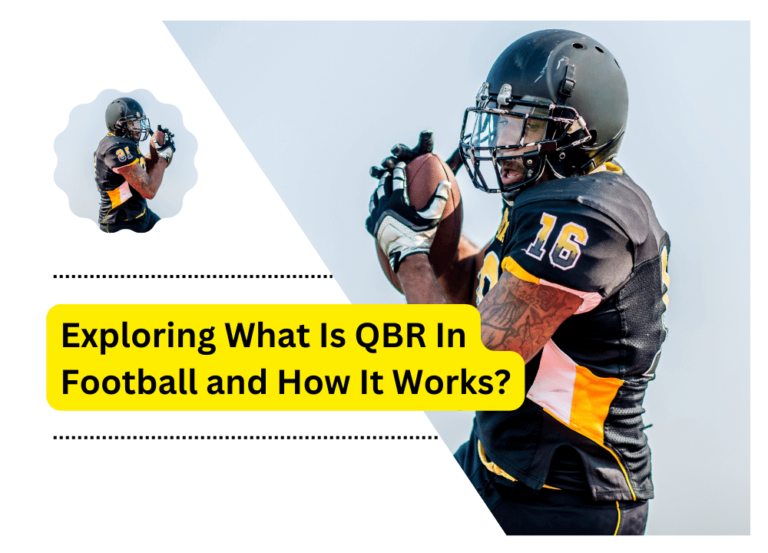What Is An Illegal Forward Pass In Football, And What They Do

In football, a forward pass is when the quarterback throws the ball to another player closer to the opponent’s end zone than he is. You can do this downfield or across the line of scrimmage. Game officials must allow a legal forward pass that meets specific criteria.
What is an Illegal Forward Pass in Football – An illegal forward pass occurs when one or more criteria are unmet. In football, players see this penalty as a severe offence. It can result in the offending team losing yardage or getting disqualified from the game.
What Makes a Forward Pass Illegal?
The main criterion that makes a forward pass illegal is whether the quarterback threw it from behind the line of scrimmage. If the quarterback throws the ball across or past this line, game officials consider it an illegal forward pass. Other criteria which make a forward pass illegal include the following:
- Having more than one player touch the ball before it crosses the line of scrimmage.
- Intentionally grounding the ball by throwing it into an area where no receiver is present.
- An ineligible player is touching or catching the ball.
- Throwing a forward pass after time has expired in the game.
What Are The Consequences Of An Illegal Forward Pass?
The consequences of an illegal forward pass depend on the team’s actions: where and when they throw it and how often they do it. Generally, an unlawful throw results in a five-yard penalty and the loss of a down.
If a team throws an illegal forward pass after the two-minute warning, game officials will impose a ten-yard penalty and a loss of down. In some cases, an illegal forward pass can result in disqualification from the game. These cases include when it is intentional or repeated many times, but this is rare.
Rules Governing the Forward Pass
Ball Movement
To consider a forward pass legal, the ball must move uninterruptedly from the passer’s hand to another player or out of bounds. Interceptions and deflections are not regarded as legal forward passes.
Touching of the Ball
Only one player may touch the ball before it crosses the line of scrimmage. If more than one player touches the ball, game officials consider the pass illegal.
Grounding
Grounding occurs when a quarterback throws a forward pass that lands in an area where no eligible receiver is present. Game officials consider this an illegal forward pass and impose a 10-yard penalty.
Eligible Receivers
The passer must throw it to an eligible receiver. It includes players on the offence who are behind the line of scrimmage and players on the defence. The pass is illegal if an ineligible player touches or catches the ball.
Time
A forward pass may not occur after time has expired in the game. Doing so will result in a penalty and loss of down.
Importance of Avoiding Illegal Forward Passes
Penalties and Loss of Yardage
What is an Illegal Forward Pass in Football – Illegal forward passes can result in penalties and loss of yardage, which can hurt a team’s scoring chances. That is why it is essential for quarterbacks to understand the rules governing forward passes and to throw only legal ones.
Diminished Chances of Winning
Illegal forward passes can also diminish a team’s chances of winning. They can put the offence in a difficult position. Players must understand the rules and be aware of their actions on the field to avoid penalties and disqualification.
Disqualification
In some instances, an illegal forward pass can result in disqualification from the game. That is why it is essential to understand and follow the rules governing forward passes to avoid this severe consequence.
Enforcement and Review of Illegal Forward Pass Calls
In football, game officials enforce the rules and decide whether a forward pass is legal or illegal. Suppose the referees believe that an unlawful forward pass has occurred. They have the power to review it using instant replay technology. It can result in either upholding or overturning the call, depending on the video evidence.
FAQs
A: A forward pass is when the quarterback throws the ball to another player closer to the opponent’s end zone than he is. Players can do this downfield or across the line of scrimmage.
A: An illegal forward pass occurs if a player throws it from behind the line of scrimmage. More than one player touches the ball before it crosses the line of scrimmage. The player grounds the ball, an ineligible player touches or catches the ball, or a forward pass happens after time has expired in the game.
A: The team’s actions determine the consequences of an illegal forward pass – when and where they throw it and how often. Generally, an unlawful throw incurs a five-yard penalty and the loss of a down. If the team throws an illegal forward pass after the two-minute warning, game officials impose a ten-yard penalty and a loss of down.
A: No, the distance of a forward pass has no restriction. But, if the quarterback throws the ball beyond what is considered “reasonable” for their arm strength. Game officials will likely rule it incomplete due to the lack of control over the ball.
A: Yes, it is possible for a forward pass to be intercepted by an opposing player. But interceptions and deflections are not considered legal forward passes.
Conclusion
Illegal forward passes can be costly for teams, resulting in penalties and loss of yardage. It is important for players to understand what is an Illegal Forward Pass in Football and the rules governing forward passes and to make sure that all throws are legal. Game officials and referees can enforce these rules and review calls with instant replay technology. By following the rules, teams can increase their chances of success on the field.






